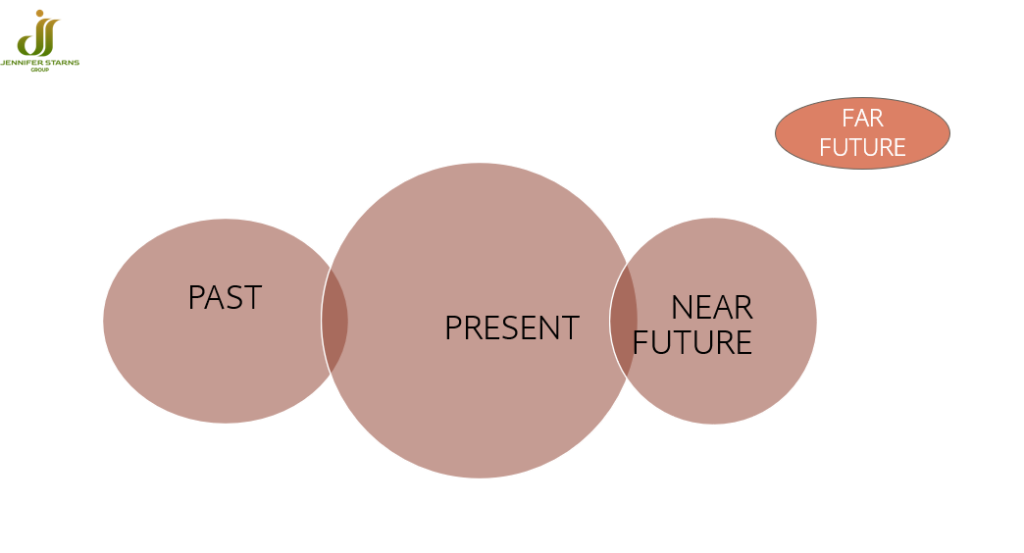As Microsoft Dynamics 365 consultants, you often juggle multiple projects and deadlines, which can lead to anxiety. A major contributor to this anxiety is how we perceive and manage time. When we think about the past, present, and future without clear boundaries, we often spend too much time dwelling on the past or worrying about the future. The key is to focus most of your mental energy on the present, where you can act and influence.
The Anxiety Trigger: Mismanaging Your Time Allocation
- No Clear Distinction Where You Should Set Your Thoughts
Think of a hummingbird—overloaded, overstimulated, and constantly busy. In your mind, your to-do list from the last client meeting, completing your timesheet, doctor’s appointment, and internal meeting should not all have the same level of urgency and importance – at the same time.
- When Past, Present, and Future Are Jumbled Together
Multitasking is often overrated. When our minds are chaotic, it can lead to unease, anxiety, and distress. Negative emotions like frustration, worry, and sadness can become overwhelming if we don’t clearly separate our thoughts about the past, present, and future.
- Projecting the Past into the Future
It’s easier to let past experiences influence future expectations when we don’t have distinct boundaries. A failed delivery does not mean all future deliverables will fail.

Conquering Anxiety: Embrace the Present Moment
- Prioritize the Present
The past and future should not dominate your thoughts. Focus on the present—the current project, the dinner you’re preparing, the birthday party you agreed to attend. Reserve the here and now for what’s urgent and important. Rest is also essential.
- Plan Ahead and Avoid Overthinking the Future
Schedule and make plans for future events, delegate, or reassign as appropriate. The future is for what’s important but not urgent. Just because you enjoy a future task is no excuse to do it now by displacing an urgent task.
- Reflect on the Past with Your Present Perspective
You can use your current resources to process past experiences. You have more resources now than you had in the past—more expertise, knowledge, and experience. Evaluate, then pick from the past what’s important and discard the rest. Address outstanding items and move forward. Determine what lessons from the past should shape your future actions.

Reflection
Take a moment to think about how you manage your time. Are you spending enough time in the present? How can you bring your focus back to the present?
For the next week, try capturing your thoughts and evaluate where you invest most of your time—in the past, present, or future.
First published on Linkedin – September 4, 2024

